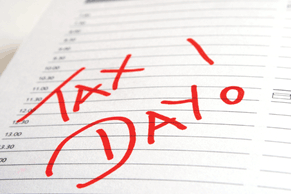HMRC concedes on penalties for late self-assessment
For weeks tax experts have been pressuring HMRC to scrap penalties for late filing of 2019/20 self-assessment tax returns. Until now HMRC has refused. Today it’s made a partial concession. What’s the full story?
-
Government unveils business rates cuts and late licensing boost for pubs
Pubs will see their business rates cut and licensing rules relaxed under a new support package aimed at reviving high streets and protecting local community hubs. What’s changing and what does it mean for the trade?
-
Is it really the end of tax relief for homeworking?
In her 2025 Budget the Chancellor announced the end of tax deductions for “non-reimbursed homeworking expenses”. How might the loss of the deduction affect you and is there an alternative tax relief you can take advantage of?
-
HMRC threatens bogus penalties
Correspondence from HMRC suggests there's a penalty if you don't pay your self-assessment tax bill by Saturday, 31 January. This isn't strictly true, but what are your options if you can't pay on time?

The pressure has been mounting on HMRC and the government to give a general amnesty for taxpayers who submit their 2019/20 self-assessment tax return online later than the usual filing deadline of 31 January 2021. HMRC hasn’t gone that far but has agreed that anyone who can’t file their return by the deadline won’t receive a late filing penalty if they file online by 28 February.
In its statement, HMRC hasn’t mentioned the penalties charged for those who were late submitting their 2019/20 paper self-assessment tax return which was due by 31 October. We’ll have to wait to see if it decides to retrospectively cancel some or all of them.
The announcement doesn’t change any statutory right to have a late filing penalty canceled if the taxpayer have a reasonable excuse for submitting their tax return after the deadline. This means if anyone can’t file your return by 28 February they still have the right to appeal against the £100 penalty that HMRC will automatically issue.





 This website uses both its own and third-party cookies to analyze our services and navigation on our website in order to improve its contents (analytical purposes: measure visits and sources of web traffic). The legal basis is the consent of the user, except in the case of basic cookies, which are essential to navigate this website.
This website uses both its own and third-party cookies to analyze our services and navigation on our website in order to improve its contents (analytical purposes: measure visits and sources of web traffic). The legal basis is the consent of the user, except in the case of basic cookies, which are essential to navigate this website.